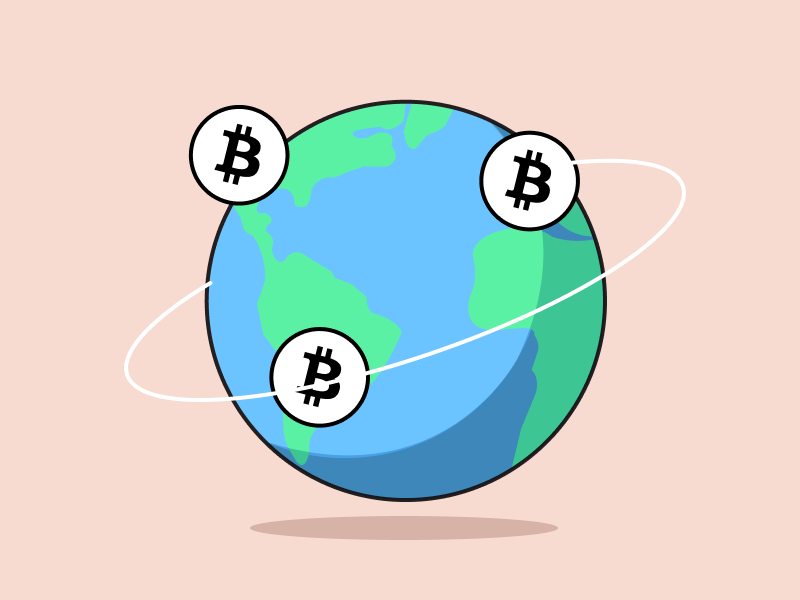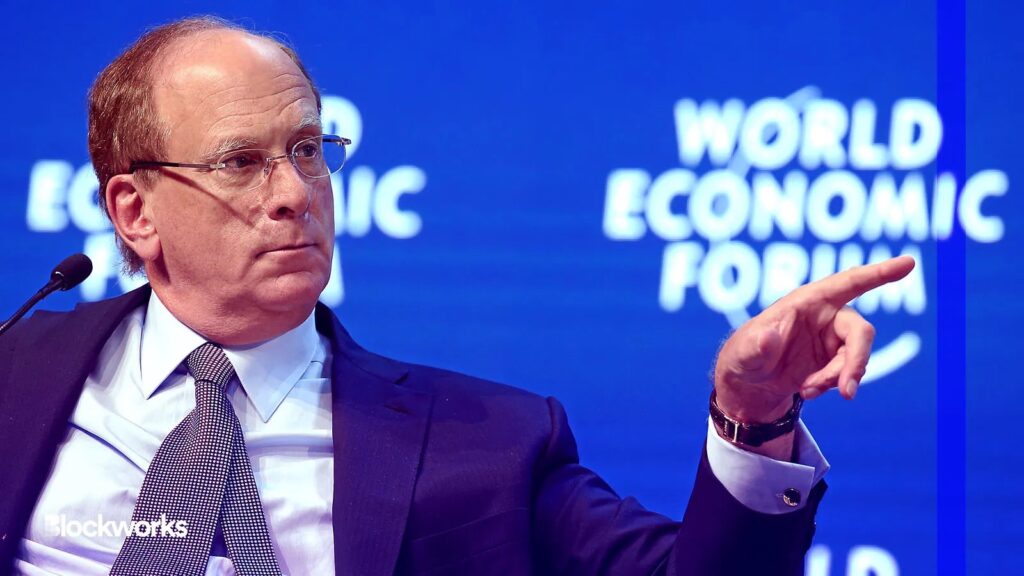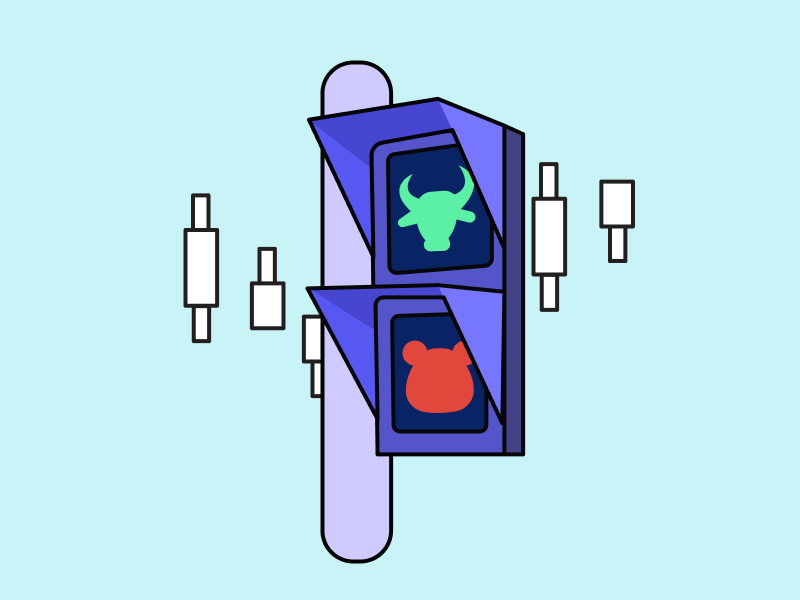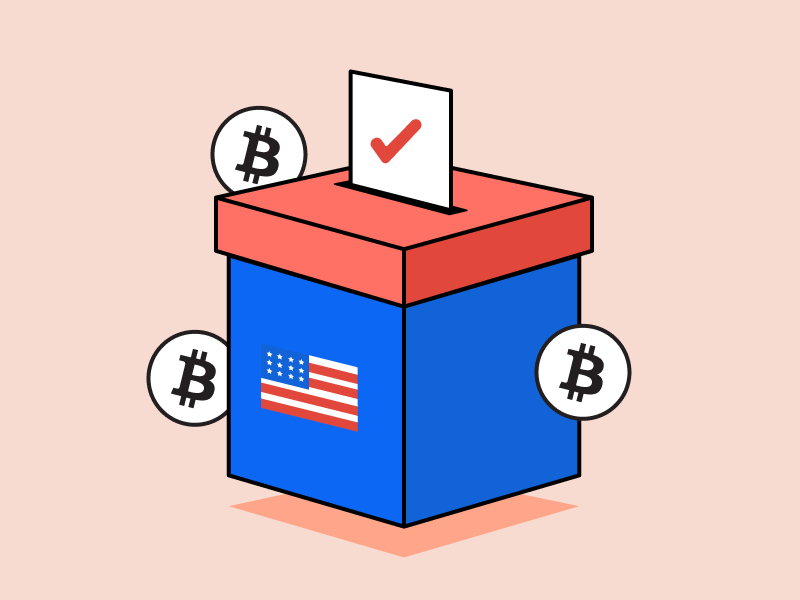Institutional and Governmental Adoption of Bitcoin: From Skeptic to Supporter

Bitcoin has evolved from an asset perceived to have no intrinsic value into a recognized investment asset. Bitcoin adoption is now widespread. From retail investors to institutional giants and even nations, Bitcoin has found a place in various portfolios. However, the next major leap in Bitcoin adoption could come from its adoption as a strategic reserve by countries. In the following article, we’ll explore the journey of Bitcoin adoption and its potential as a strategic reserve.
Article Summary
- ♻️ Bitcoin adoption can be divided into four stages: rejecting, skeptical, learning, and accepting.
- 😏 Many countries that initially rejected Bitcoin now accept it by creating regulations to protect investors.
- 🤌 Financial institutions that previously did not recognize Bitcoin own it directly or through spot Bitcoin ETFs.
- 🇺🇸 Bitcoin adoption can be even more massive when a country uses it as a strategic reserve. US Senator Cynthia Lummis and Donald Trump will carry out the discourse if he is re-elected as US President.
The Long & Winding Road for Bitcoin Adoption
Bitcoin’s journey to acceptance has been marked by skepticism and criticism. Prominent figures like BlackRock CEO Larry Fink and JPMorgan Chase CEO Jamie Dimon initially doubted Bitcoin’s value. They did not hesitate to label Bitcoin as an asset for money laundering, speculative, or lacking intrinsic value. However, as they witnessed its growth and adoption, they recognized its potential as an asset class.

Meanwhile, many countries viewed Bitcoin as an instrument linked to criminal activities, terrorism, and money laundering. Additionally, Bitcoin was opposed due to its decentralized nature and resistance to regulation.
However, these countries have gradually softened their stance. They no longer oppose it entirely but attempt to create regulations to prevent Bitcoin from being misused. Regulations are also being put in place to protect investors.
Once dismissed and disregarded, Bitcoin is now being adopted by both countries and financial institutions. Nevertheless, the adoption of Bitcoin has yet to reach a massive scale. There is one possibility that could propel Bitcoin adoption to unprecedented levels: its use as an asset in a country’s strategic reserve.
You can also find other crypto mass adoption requirements in the following article.
Bitcoin Adoption as Strategic Reserves
Bitcoin’s adoption could significantly increase if a country were to officially designate it as a strategic reserve. US Senator Cynthia Lummis has proposed a draft bill for the US to purchase 1 million Bitcoins as part of its strategic reserve. Based on the current price of BTC, this would equate to approximately $58 billion.
A strategic reserve is a stockpile of a commodity or resource held back from normal use. It's essentially a safety net that governments, organizations, or businesses maintain to protect against unexpected shortages or price spikes.
The proposal outlines a five-year timeframe for the BTC purchase. Lummis cited the need to counteract the effects of the declining value of the US dollar due to inflation as the reason for making Bitcoin a strategic reserve.
“BTC is a great store of value. Over the past four years, BTC has increased about 55% per year. During the same period, the US dollar has declined in value, and we’ve seen increasing inflation,” Lummis explained in an interview with The Block.
Lummis has been a long-time supporter of Bitcoin, and it is rumored that she purchased her first BTC in 2013. Since then, she has been at the forefront of pushing for legislation related to the crypto industry.
She believes using BTC as a strategic reserve to address debt issues or combat inflation is logical, especially since the US already has oil and gold as part of its strategic reserve. However, she acknowledges that this would be a big step.
Although Lummis said she is optimistic that some crypto-specific legislation could pass this year, she does not think the Bitcoin treasury reserve bill will be seriously considered until after the upcoming elections.
Donald Trump’s Big Plans for Bitcoin Adoption
A big step for Bitcoin adoption could be in the hands of US Presidential candidate Donald Trump. Trump has publicly shown his support for Bitcoin and the crypto industry.
In fact, at the Bitcoin Conference in Nashville, he promised to choose regulators that are more friendly to the crypto industry if elected. Another promise from Trump is his idea to make Bitcoin an asset in the US strategic reserve.
“If I am elected, the US will continue to hold all 100% of the Bitcoin that is currently or will be owned by the US Government. Later, the Bitcoin ownership will be used as an asset in the US strategic reserve,” Trump said.

Based on information from Satoshi Action Fund Founder Dennis Porter, it is known that at least 2,200 letters were sent to senators containing support for making Bitcoin a strategic reserve. A total of 1,333 letters were sent to the Democratic Party, 850 letters to the Republican Party, and the rest to independent parties.
Based on Trump’s and Lummis’s statements and 2,200 letters of support to senators, it shows a high interest in making Bitcoin an asset in the US strategic reserves. However, despite this enthusiasm, there are still significant doubts and questions regarding the execution and implementation of the plan.
You can read the DeFi adoption rates in 2023 reports here.
Why is Bitcoin as the US Strategic Reserve Important for Bitcoin Adoption?
“Galaxy Digital’s Head of Research, Alex Thorn, provides a compelling explanation of the domino effect if Bitcoin becomes a US strategic reserve. According to him, such a move by the US would legitimize Bitcoin as a scarce commodity akin to oil or gold. Moreover, the limited supply of Bitcoin would create scarcity.
Historically, countries compete fiercely to acquire the largest portion of scarce commodities. The more they possess, the more they benefit.
“The game theory concept is that adoption by one country is necessary for others to consider doing the same, regardless of whether they are allies or adversaries,” explains Thorn.
He believes this game theory will experience significant growth when the US, the world’s wealthiest nation and economic powerhouse, becomes the first to accumulate Bitcoin as a strategic asset. If the US takes this step, other countries will likely follow suit.
If the US and other countries designate Bitcoin as a strategic reserve, it would accelerate the adoption and acceptance of Bitcoin as a long-term store of value, similar to digital gold.
With this scenario, Thorn believes a mutually beneficial relationship will be created. As an asset class, Bitcoin will be widely adopted, and its value will continue to rise due to the imbalance of supply and demand. Meanwhile, the US will be the primary beneficiary as the first mover.”
Bitcoin Adoption by Institutional Investors and Countries
The broad adoption of Bitcoin is already being implemented by other countries as well as institutional investors. Here are some examples:
El Savador
Before the US proposition, El Salvador had already adopted BTC as its strategic reserve. Salvadoran President Nayib Bukele first announced this decision in 2021. It is recorded that El Salvador owns 5,750 BTC, with an average purchase price of around $42,700. With the current BTC price, El Salvador is recording an unrealized gain of 34.66%.
Regardless of the profit gained, Bukele assured that his country would hold Bitcoin long-term. He once stated that El Salvador will not sell its Bitcoin because, ultimately, 1 BTC will always equal 1 BTC.
Institutional Investor
MicroStrategy is one of the institutional investors that believes in Bitcoin’s prospects and has made it a reserve asset, specifically for its treasury. It is recorded that MicroStrategy first announced the purchase of 21,454 BTC in 2020. Since that announcement, they have been making regular Bitcoin purchases.
As a result, MicroStrategy has become the corporation with the largest BTC holdings in the world, at 226,000 BTC. Converted at the current BTC price of $57,500, this amounts to $12.99 billion. This amount even exceeds the holdings of the US or any other country.
BlackRock is an institutional investor that is in favor of Bitcoin and crypto adoption. They have shown this support by offering Bitcoin and Ethereum spot ETFs and by founding BUIDL, a tokenization program. Take a look at their involvement in the crypto industry in the article below.
Banking
Another group of institutional investors that have driven Bitcoin and crypto adoption is the banking industry. This group is known as a crypto-friendly bank. Some examples include Revolut, Wirex, SEBA Bank, Ally Bank, and Monzo, among many others.
Crypto-friendly banks are financial institutions that embrace crypto and create services tailored to the needs of crypto-enthusiastic customers. They aim to bridge the gap between retail and institutional investors looking to integrate DeFi into their financial strategies.
Some of their services include facilitating the buying, selling, and storing of crypto assets. Some even provide specific integration with web3 wallets or have their web3 wallets. These crypto-friendly banks partner with trusted exchanges like Binance, Coinbase, and Kraken.
Several major traditional banks like JPMorgan, Citi, U.S Bank, and Wells Fargo are reportedly interested in adopting blockchain technology inspired by Bitcoin.
Conclusion
Bitcoin’s evolution from a speculative asset to a recognized investment vehicle is a testament to its resilience and potential. As more countries and institutions embrace Bitcoin, its role in the global financial system is likely to expand. The adoption of Bitcoin as a strategic reserve could be a pivotal moment in its history.
Buy Crypto on Pintu
Looking to invest in crypto assets? No worries, you can safely and conveniently purchase a wide range of cryptocurrencies such as BTC, ETH, SOL, and others safely and easily at Pintu. Pintu diligently evaluates all its crypto assets, highlighting the significance of being cautious.
Pintu is also compatible with popular wallets such as Metamask to facilitate your transactions. Download Pintu app on Play Store and App Store! Your security is guaranteed because Pintu is regulated and supervised by Bappebti and Kominfo.
Aside from buying and trading crypto assets, you can expand your knowledge about cryptocurrencies through various Pintu Academy articles. Updated weekly, all Pintu Academy articles are made for knowledge and educational purposes, not as financial advice.
References
- Nikhilesh De, Bitcoin as a Strategic Reserve, CoinDesk, accessed on 9 August 2024.
- Sam Lyman, Trump Sparks Talks Of Bitcoin As A Strategic Reserve Asset, Forbes, accessed on 9 August 2024.
- Daniel Kuhn, Sen. Cynthia Lummis announces bill for US Treasury to buy 1 million bitcoin worth $68 billion: Bitcoin 2024, The Block, accessed on 9 August 2024.
- Billy Bambrough, Visa, Mastercard, JPMorgan And Citi Reveal Crypto Plan For ‘Mass Institutional Adoption’ After Bitcoin, Ethereum And XRP Price Pump, Forbes, accessed on 9 August 2024.
- Vivek Sen, First Nation to Buy Bitcoin El Salvador Passes $400 Million in Holdings, Bitcoin Magazine, accessed on 9 August 2024.
- Aaron S, Crypto-Friendly Banks in the USA, UK, and Europe, BitDegree, accessed on 9 August 2024.
Share
Table of contents


